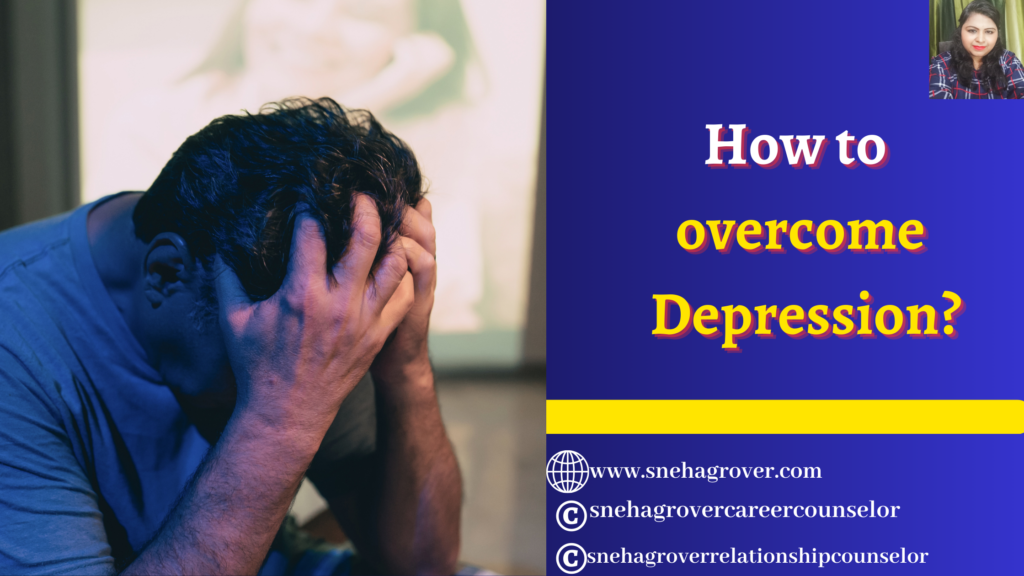Overcoming Depression: Strategies for a Brighter Tomorrow

Introduction:
Depression is a challenging and often debilitating mental health condition that affects millions of people worldwide. While overcoming depression can be a complex and deeply personal journey, there are various strategies and approaches that can help individuals find hope, resilience, and a path towards recovery. In this blog, we will explore key steps to help you or a loved one overcome depression and embark on a journey toward a brighter tomorrow.
- Seek Professional Help:
The first and most crucial step in overcoming depression is seeking professional help. A mental health expert, such as a therapist, psychiatrist, or counselor, can provide a diagnosis and recommend appropriate treatment options. Therapy, medication, or a combination of both may be necessary for managing depressive symptoms effectively.
- Build a Support Network:
Isolation is a common feature of depression, making it essential to establish and maintain a support network. Confide in friends and family members who can offer emotional support and understanding. Consider joining support groups where you can connect with others who are experiencing similar challenges.
- Set Realistic Goals:
Depression can make even the simplest tasks feel overwhelming. Start by setting achievable, realistic goals. Break down larger tasks into smaller, more manageable steps, and celebrate each accomplishment as a victory.
- Embrace a Healthy Lifestyle:
A balanced diet, regular exercise, and adequate sleep are crucial components of overcoming depression. Nutrient-rich foods and physical activity can positively impact mood, energy levels, and overall well-being. Prioritize self-care and establish a consistent sleep routine to enhance mental and emotional resilience.
- Challenge Negative Thoughts:
Depression often involves distorted, negative thought patterns that perpetuate feelings of hopelessness and despair. Cognitive Behavioral Therapy (CBT) can be highly effective in helping individuals identify and challenge these harmful thoughts, replacing them with more constructive and positive beliefs.
- Mindfulness and Meditation:
Practicing mindfulness and meditation techniques can help individuals develop awareness of their thoughts and emotions. These practices encourage living in the present moment, reducing anxiety, and promoting a sense of calm and self-acceptance.
- Medication Management:
If prescribed medication, ensure that you take it as directed and keep regular appointments with your healthcare provider. Medication can help regulate chemical imbalances in the brain, making it an essential part of many people’s recovery plans.
- Express Yourself:
Creative outlets, such as art, writing, or music, can provide a means of self-expression and emotional release. Engaging in these activities can be therapeutic and help you process your emotions.
- Gradual Exposure:
Depression often leads to social withdrawal and avoidance of previously enjoyable activities. Gradual exposure to such activities can help rekindle a sense of pleasure and purpose in life. Even if it feels challenging at first, taking small steps can make a significant difference.
- Accept Relapses:
Recovery from depression is not always linear. There may be periods of relapse and setbacks. It’s crucial to accept these moments as part of the process and continue to seek help and support during difficult times.
- Patience and Self-Compassion:
Overcoming depression is a gradual and sometimes frustrating journey. Be patient with yourself and practice self-compassion. Remember that it’s okay to ask for help and take one step at a time.
- Celebrate Small Victories:
Recognize and celebrate every achievement, no matter how small. Each step toward recovery, no matter how modest, is a victory worth acknowledging and celebrating.
Conclusion:
Overcoming depression is an ongoing process that requires time, patience, and resilience. By seeking professional help, building a support network, and implementing these strategies, individuals can navigate their way towards a brighter future. Remember that recovery is possible, and with the right combination of treatment, self-care, and support, you can regain your sense of well-being and rediscover the joy in life.
